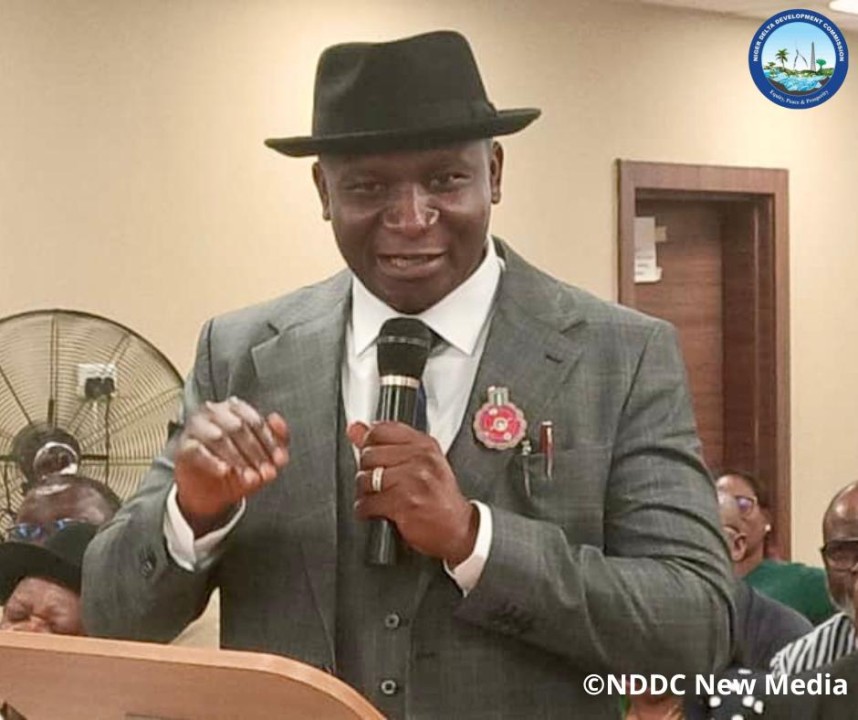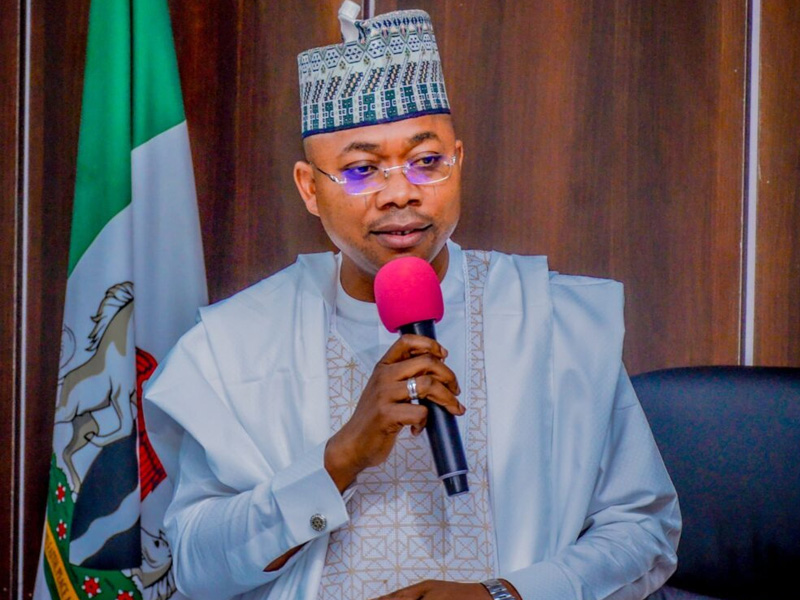By Anne Azuka
The Managing Director of the Niger Delta Development Commission (NDDC), Dr. Samuel Ogbuku, has reaffirmed the Commission’s commitment to partnering with donor agencies and key stakeholders across the Niger Delta to drive critical infrastructure and community development.
Dr. Ogbuku made this known during a World Press Conference in Asaba, held as part of activities marking the Commission’s 25th anniversary.
He emphasized that the NDDC remains open and willing to collaborate with development partners, state governments, and stakeholders in all NDDC mandate states, stressing that the people of the region are entitled to benefit from the Commission’s intervention efforts.
“The NDDC is a product of an Act of Parliament—born out of the need to address the crisis in the Niger Delta. This makes it unique and people-oriented,” Ogbuku stated.
Highlighting the reforms and strides recorded under his leadership, Ogbuku noted that the Commission has transitioned “from transaction to transformation” in its operations. This shift, he said, is rooted in President Bola Tinubu’s Renewed Hope Agenda and focuses on transparency, accountability, and sustainable impact.
“We signed a performance bond at our retreat in Ikot Abasi to align the Board, Management, and Presidency. From there, we began consultations across the region—engaging traditional rulers, youth groups, women leaders, and other stakeholders—to develop a strategic work plan.”
He said the Commission introduced the “Rewind to Rebirth” policy to assess past challenges and successes, engage former leadership for insights, and recalibrate its future direction.
To improve transparency, the MD revealed that the NDDC has digitized its procurement processes, ensuring that all award letters are verifiable to prevent fraud and restore public confidence.
“We began by sanitizing our internal systems—starting with procurement. Today, all award letters are digitally verifiable to eliminate forgery. We’ve also worked with KPMG to design a Governance Advisory Policy, complete with SOPs, to ensure compliance, transparency, and continuity beyond our tenure.”
Ogbuku stressed that institutionalizing governance processes is crucial for attracting donor support and investment from International Oil Companies (IOCs) and global development partners.
“We want the NDDC of the future to go beyond brick-and-mortar projects. To access global funding, we must demonstrate transparency and compliance. That’s why we are strengthening internal structures to attract donor confidence.”
He cited completed projects, such as the electrification of Ondo South—bringing power to the region after 15 years—and the commissioning of power and road infrastructure in Edo, Akwa Ibom, Rivers, and Imo states.
“We balanced the completion of legacy projects with the execution of impactful new ones. Our guiding principle is: don’t start what you can’t finish.”
According to him, the NDDC is actively engaging stakeholders like NNPC, Chevron, and NLNG on co-financing major infrastructure projects, such as the 67km Escravos Road with multiple bridges.
“We’ve held multiple meetings with the Delta State Government, Chevron, and are involving NNPC to ensure this vital project takes off. This demonstrates the seriousness of the Commission under the Renewed Hope Agenda.”
He also debunked claims of underfunding by the federal government, commending the current administration for providing unprecedented support.
“This administration has funded the NDDC more than any previous government. We cannot complain of neglect under the current leadership.”
Earlier, the Chairman of the NDDC Board, Barr. Chiedu Ebie, commended the collective efforts of the Board and Management, saying their synergy has repositioned the Commission for greater service delivery.
The press conference served as a platform to showcase the Commission’s progress over the past two years and reinforce its renewed commitment to the sustainable development of the Niger Delta.





